Now Reading: Brené Brown: The Boundary Builder Who Showed Survivors How to Reclaim Control
- 01
Brené Brown: The Boundary Builder Who Showed Survivors How to Reclaim Control
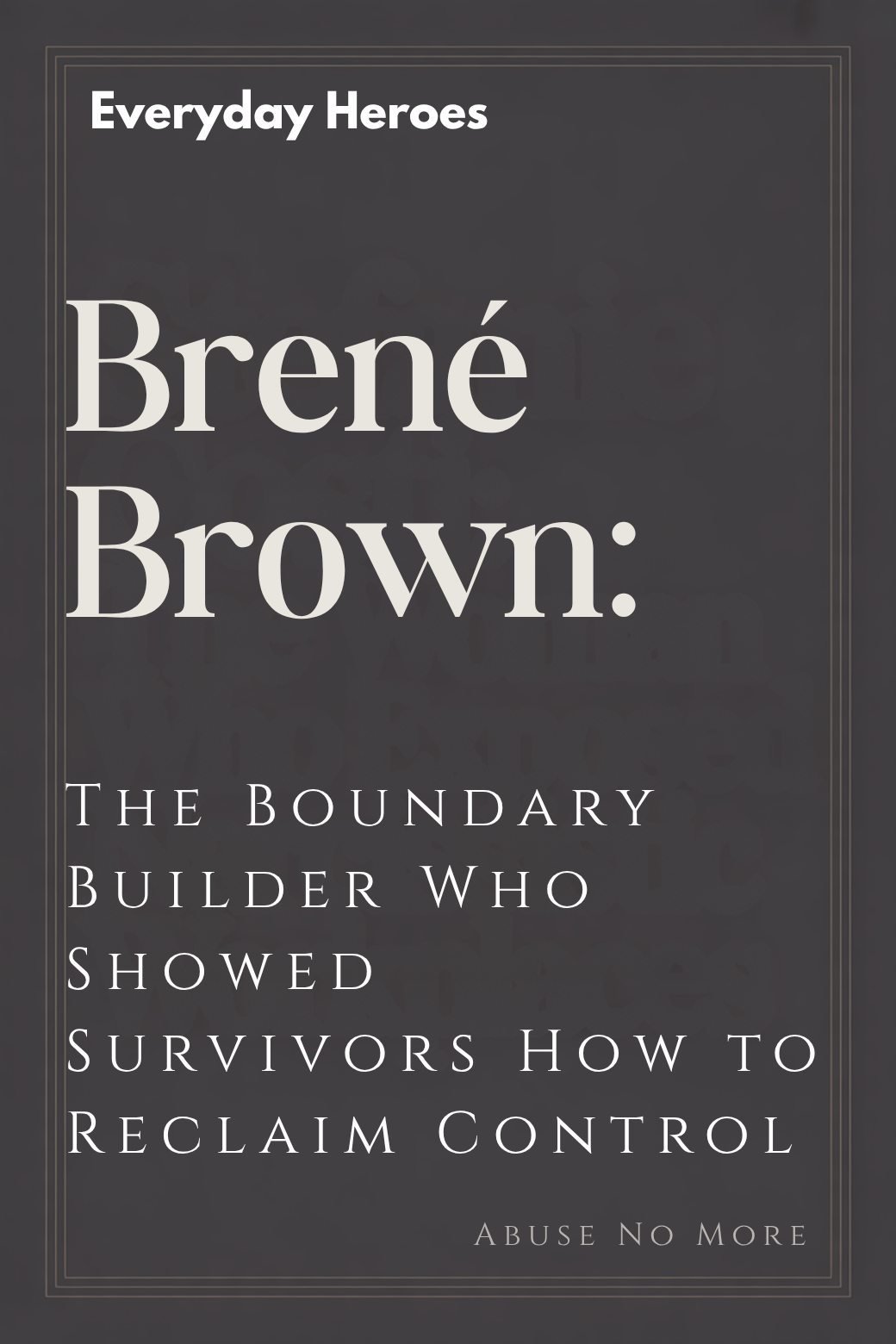
Brené Brown: The Boundary Builder Who Showed Survivors How to Reclaim Control
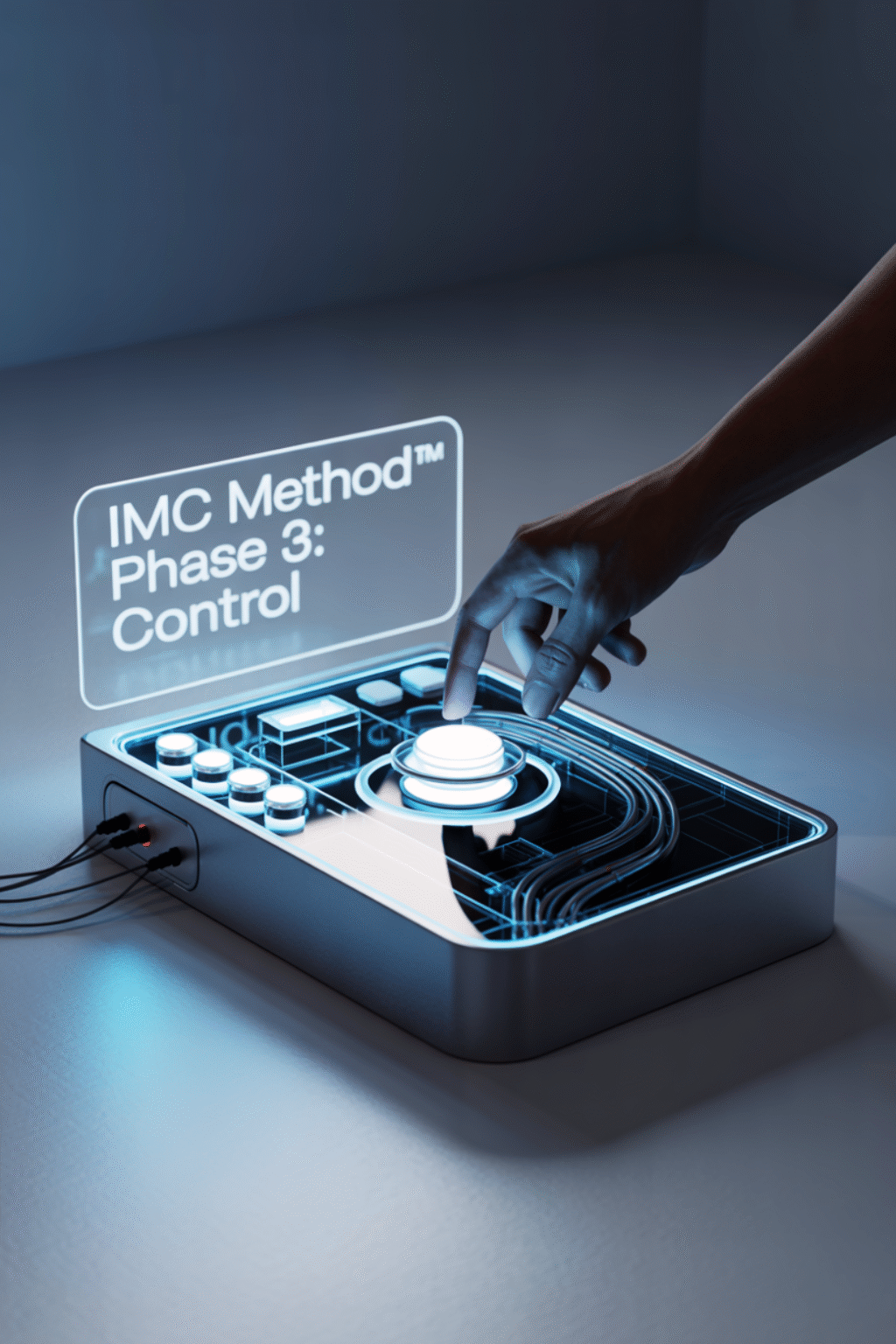
Brené Brown: The Boundary Builder Who Showed Survivors How to Reclaim Control
IMC Method™ Phase 3: Control
Narcissists thrive in silence.
They weaponize your shame.
They convince you that setting boundaries makes you mean, difficult, or broken.
And then comes Brené Brown — the soft-spoken Texan with a Ph.D. and a steel spine — who shows up and says:
“Boundaries are the distance at which I can love you and me simultaneously.”
That’s not just healing.
That’s control.
In the IMC Method™, Phase 3: Control is about one thing:
Reclaiming your power — your time, your mind, your self — after someone (or some system) tried to hollow it out.
And Brené doesn’t just teach that.
She models it — publicly, vulnerably, and without shame.
🧠 The Researcher Who Talked About Things Survivors Were Taught to Hide
Before Brené, nobody mainstream was saying “shame” out loud.
Not on TED stages. Not in boardrooms. Not in therapy offices without a whisper.
But she went right to the heart of it.
She didn’t talk about symptoms. She talked about the core wound narcissists love to exploit:
- “You’re not good enough.”
- “You’re too emotional.”
- “You don’t belong.”
- “You’re the problem.”
Brené took that internal monologue survivors have — the one installed by years of gaslighting, invalidation, and neglect — and gave it language, science, and a way out.
🚪 The Exit Ramp from Shame
For many survivors, healing isn’t about leaving the narcissist.
It’s about leaving the version of themselves the narcissist created.
That broken, apologetic, second-guessing version who believed:
- “Maybe I am the crazy one.”
- “I should’ve handled it better.”
- “If I just loved harder…”
Brené breaks that lie like a hammer through glass.
“Shame needs three things to grow: secrecy, silence, and judgment.
If you put it in a Petri dish and add empathy, it can’t survive.”
Let’s be real:
Most survivors have been surviving in a shame Petri dish for years.
Brené is the one who hands them the empathy.
That’s the beginning of Control.
🛡️ Why She Belongs in IMC Phase 3
Identify helped you name the abuse.
Minimize helped you step back.
Control helps you rebuild — and Brené gives you the blueprints.
She shows survivors how to:
- Set boundaries without guilt
- Practice self-compassion without apology
- Reclaim belonging without begging
- Speak truth without shame
She’s not giving you empowerment slogans.
She’s giving you the language of internal justice.
🧱 Boundary Work, Brené-Style
Let’s talk boundaries — the ultimate threat to a narcissist.
Brené doesn’t say, “Cut them off and don’t look back.”
She says, “You can love someone and still say, no more access to my peace.”
To a survivor, that’s revolutionary.
Because narcissists taught them that boundaries = abandonment.
Brené teaches that boundaries = self-respect.
Her most iconic teachings on this?
- “Clear is kind. Unclear is unkind.” Narcissists feed on vagueness. Clear boundaries cut the supply.
- “Compassionate people have the clearest boundaries.” You’re not a bad person for saying “no.” You’re a whole person for finally meaning it.
- “Daring to set boundaries is about having the courage to love ourselves, even when we risk disappointing others.” Yes, even if that “other” is your mother, your partner, or your boss.
🎤 What She’s Actually Done
Let’s take a look at her impact:
- Gave one of the top 5 most-watched TED Talks of all time: The Power of Vulnerability
- Author of 6 New York Times bestsellers, including Daring Greatly, The Gifts of Imperfection, and Atlas of the Heart
- Creator of multiple research-based frameworks for emotional resilience, leadership, and trauma recovery
- Consultant for leaders at NASA, the U.S. military, and Fortune 100 companies — all of whom had to confront toxic systems
- Developed a vocabulary for healing — now used by therapists, teachers, trauma coaches, and everyday survivors in 70+ countries
This is not woo-woo self-help.
This is evidence-based empowerment.
🪞 What Survivors See in Her
They don’t see perfection.
They see someone who stumbles, gets back up, and tells the truth about it.
She’s cried onstage.
She’s admitted to people-pleasing, shame spirals, and sabotaging her own joy.
She talks openly about therapy, parenting mistakes, and her struggles with vulnerability.
And that authenticity is the antidote to narcissistic conditioning, which says:
“You must perform. You must please. You must never be wrong.”
Brené says:
“You are worthy, even when you’re messy.”
And that? That rebuilds people from the inside out.
🔄 CONTROL Means You Can Finally Choose Again
In the Control phase, survivors ask:
- Who do I want to be now?
- What do I stand for?
- What gets access to me?
- What doesn’t?
Brené gives you permission to explore those answers — without shame.
She reminds you:
“You can’t get to courage without walking through vulnerability.”
For survivors, vulnerability used to be a trap.
With Brené, it becomes a bridge.
🧠 The Real Quotes That Live Rent-Free in Survivor Brains
These aren’t just tweets.
These are mantras that survivors hold onto when they’re about to break:
“You either walk inside your story and own it, or you stand outside of your story and hustle for your worthiness.”
“Vulnerability is not weakness; it’s the most accurate measure of courage.”
“Talk to yourself like you would to someone you love.”
“Let go of who you think you’re supposed to be; embrace who you are.”
And of course:
“Daring greatly means showing up and letting ourselves be seen. Even when it’s hard. Especially when it’s hard.”
💡 What CONTROL Actually Looks Like, Brené-Style
- Saying “no” without explaining yourself
- Being honest when something hurts
- Refusing to let shame write the script
- Owning your story — so no one else can weaponize it
- Knowing that your worth isn’t negotiable — not even to yourself
CONTROL isn’t about dominating.
It’s about anchoring — in your values, your body, and your voice.
And Brené Brown?
She gives you the map.
🏁 Final Word
Brené Brown is not a self-help icon.
She’s a reclamation artist.
She doesn’t tell you what to do.
She hands you the tools to do it yourself — and makes sure you know:
“You are not too sensitive. You are finally refusing to go numb.”
She fits into the IMC Method™ CONTROL phase because she teaches you how to restructure your entire emotional life around truth, not trauma.
She’s not fixing you.
She’s reminding you that you were never broken.
You just forgot how much power you had before someone made you give it away.
And now?
You get to take it back.
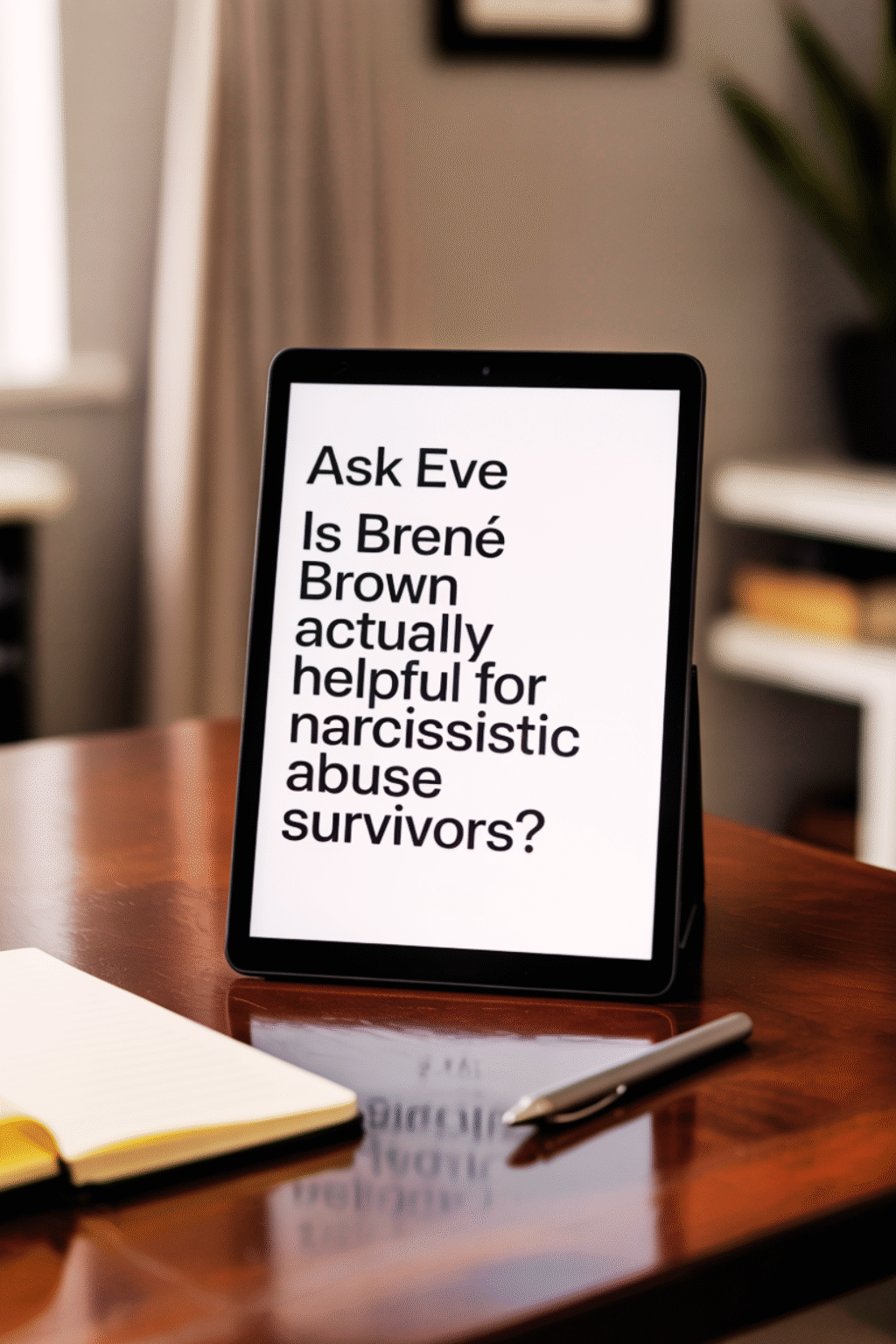
💬 Ask Eve
Is Brené Brown Actually Helpful for Narcissistic Abuse Survivors?
She’s quoted like gospel, TED-talked into immortality, and shows up on every self-help shelf you scroll past. But for survivors of narcissistic abuse—people dealing with trauma, identity collapse, and long-term manipulation—is Brené Brown relevant?
Short answer: Yes—but only if you know how to apply her work through a trauma lens, not a performance one.
Here’s how to break it down.
❓1.
Is Brené Brown trauma-informed enough for survivors of narcissistic abuse?
Answer: She’s not a therapist, but her research on shame and vulnerability intersects heavily with trauma dynamics. While she doesn’t directly address narcissistic abuse, her insights around toxic shame, emotional armor, and worthiness are incredibly useful once you’re out of the fog.
Her work helps survivors understand how shame was used against them—and how to separate their inherited guilt from their inherent value. Use her as a bridge to deeper trauma recovery—not a replacement for it.
❓2.
How does Brené Brown help with shame spirals caused by emotional abuse?
Answer: Narcissists weaponize shame like a scalpel: subtle, precise, and constant. Brené’s entire body of work focuses on unmasking shame and replacing it with truth. She teaches survivors how to identify when they’re spiraling—“I’m not good enough,” “I’m too much,” “I’m always the problem”—and gives language to interrupt it.
Her “shame shields” (moving away, moving toward, moving against) can help you recognize your automatic defenses and start replacing them with actual boundaries.
❓3.
Does her focus on vulnerability backfire for people who were exploited emotionally?
Answer: If you’re still trauma-bonded or stuck in an unsafe environment, yes, her work on vulnerability can feel risky—or even dangerous. Vulnerability is a tool, not a virtue. Brené herself says that vulnerability without boundaries isn’t vulnerability at all—it’s oversharing, or worse, self-betrayal.
For survivors of narcissistic abuse, the goal is strategic vulnerability: learning when it’s safe, when it’s earned, and when silence is self-protection. Brené’s work won’t teach you trauma pacing—but if you’re already working with a therapist, it can deepen your healing.
❓4.
Can her work help me rebuild trust in myself after gaslighting?
Answer: Yes, but it’s indirect. Brené helps survivors reconnect with their core values, which is a key step in restoring self-trust. Gaslighting erodes your internal compass. Her books—especially The Gifts of Imperfection and Dare to Lead—guide you in naming your values and living in alignment with them, even when your fear says “don’t.”
She won’t walk you through nervous system repair, but she’ll remind you that your voice is worth hearing—even if it shakes.
❓5.
Which Brené Brown book is best for narcissistic abuse survivors?
Answer: Start with The Gifts of Imperfection. It’s the most relevant for survivors rebuilding identity after manipulation. This book deconstructs perfectionism, people-pleasing, and shame—all of which narcissists exploit.
After that, Atlas of the Heart can help you develop a more precise emotional vocabulary. When you’ve spent years being told your feelings are wrong, being able to name them clearly is radical self-validation.
❓6.
What’s missing from Brené’s work for narcissistic abuse recovery?
Answer: She doesn’t talk about narcissism directly. You won’t find sections on trauma bonding, gaslighting, or coercive control. There’s no nervous system framework or recovery map.
What’s missing is the clinical depth trauma survivors often need. That’s why Brené is best used alongside trauma-informed therapy, not instead of it. Think of her as a guide for self-worth reclamation, not emergency response.
❓7.
How should I use her work without bypassing my trauma?
Answer: Don’t rush into “vulnerability” or “wholehearted living” until you’ve felt safe, validated, and stabilized. Brené’s teachings are beautiful—but they’re not armor. If you try to use them while you’re still hypervigilant or blaming yourself for the abuse, they may feel more like pressure than empowerment.
Use her language to reframe:
- “I’m not broken—I was systematically manipulated.”
- “My shame is not a weakness—it was implanted.”
- “I don’t need to be more vulnerable—I need to be more discerning.”
Start where you are. Use what strengthens you, discard what doesn’t serve you yet.
🧭 Final Word from Eve:
Brené Brown is not a trauma therapist—but she is a truth translator. She names what many survivors felt but never had language for: shame as a control tactic, perfectionism as protection, connection as medicine.
Use her work once you’re ready to build—not just survive.
And remember: survivors of narcissistic abuse don’t need motivational fluff. They need tools that name what happened, honor their timeline, and respect the brilliance of survival.
Brené can be part of that.
She just isn’t all of it.
You’re Not Alone: 7 External Self-Help Resources That Actually Help
Let’s stop pretending healing means doing it all solo. These aren’t fluff-filled feel-good blogs — they’re real-world tools, survivor-vetted, and built to meet you where you are.
1.
MyNARA Recovery App
If you want structure, tools, and trauma-aware pacing, this app delivers. Designed specifically for survivors of narcissistic abuse, MyNARA tracks red flags, records your emotional timeline, and offers guided modules to help you stay grounded. Think of it as your digital therapist’s assistant — without the judgment or pressure.
2.
Sarah Herstich, LCSW – Nervous System Recovery
Sarah’s work zeroes in on healing the body after narcissistic abuse. If talk therapy alone hasn’t touched the depth of your burnout, her resources on somatic regulation, trauma-informed therapy, and boundary rehab are gold. Her blog posts read like permission slips — and she’s one of the few who gets it without glossing it over.
3.
Verywell Mind: Narcissistic Abuse Support Groups
Sometimes you need community before clarity. This guide breaks down where to find peer support, both in-person and online — including safe spaces that won’t gaslight you or say “forgive and forget.” You’ll find options vetted for emotional safety and recovery-forward goals.
4.
Dr. Ramani YouTube Channel
https://www.youtube.com/c/DoctorRamani
Dr. Ramani is basically the Beyoncé of narcissism education — minus the sugarcoat. Her no-nonsense videos break down complex narcissistic behaviors into digestible, affirming truths. She names the manipulation without pathologizing you — and hearing it from her mouth hits different when you’re doubting your own.
5.
Tiny Buddha: Healing From Narcissistic Abuse
This post goes deep on rebuilding self-esteem after abuse — not with woo-woo fluff but with grounded advice, inner-child validation, and slow, safe exercises. For the days you can barely move, it reads like a gentle friend who knows the whole story and isn’t in a rush to “fix” you.
6.
Out of the FOG (Fear, Obligation, Guilt)
This treasure trove of narcissism resources gives you the language, clarity, and validation you’ve been starving for. With glossaries of toxic traits, survivor stories, and tools to reduce FOG (Fear, Obligation, Guilt), this site is like your trauma-informed dictionary — and a damn good compass.
7.
Psych Central: Emotional Abuse Recovery Guide
Need to understand the trauma science and get practical with your next step? This guide mixes both: you’ll get the brain-side effects of emotional abuse and clear steps to rewire your thought patterns. The tone is smart but never smug — perfect for survivors rebuilding trust in themselves and the world.
📍3 Abuse No More Guides to Keep You Anchored
These are your in-house blueprints — written for survivors, by survivors, with the IMC Method™ woven through every word.
1.
The IMC Method™ Explained
https://abusenomore.com/imc-method
This is your north star. The IMC Method™ breaks down narcissistic manipulation into three tactical moves: Identify, Minimize, Control. It’s not a concept — it’s a survival framework that helps you regain clarity, set boundaries, and take your life back on your terms.
2.
You’re Not Lazy — You’re Grieving
https://abusenomore.com/not-lazy-youre-grieving
For the days when showering feels like climbing Everest and shame whispers “You’re useless,” this piece pulls you back into reality: you’re not broken — you’re healing. From adrenal fatigue to the grief nobody sees, this article is the nervous-system validation you didn’t know you needed.
3.
How to Find the Right Therapist After Narcissistic Abuse
https://abusenomore.com/therapy-after-narcissistic-abuse
Not all therapists get narcissistic abuse. In fact, most don’t. This guide walks you through screening questions, red flags to watch for, and how to spot trauma-informed care that actually helps. If you’re tired of explaining your trauma to the person who’s supposed to treat it — start here.



-dream-team-your-tactical-6-pack-to-exit-heal-reclaim-after-narcissistic-abuse-1024x1536.png)
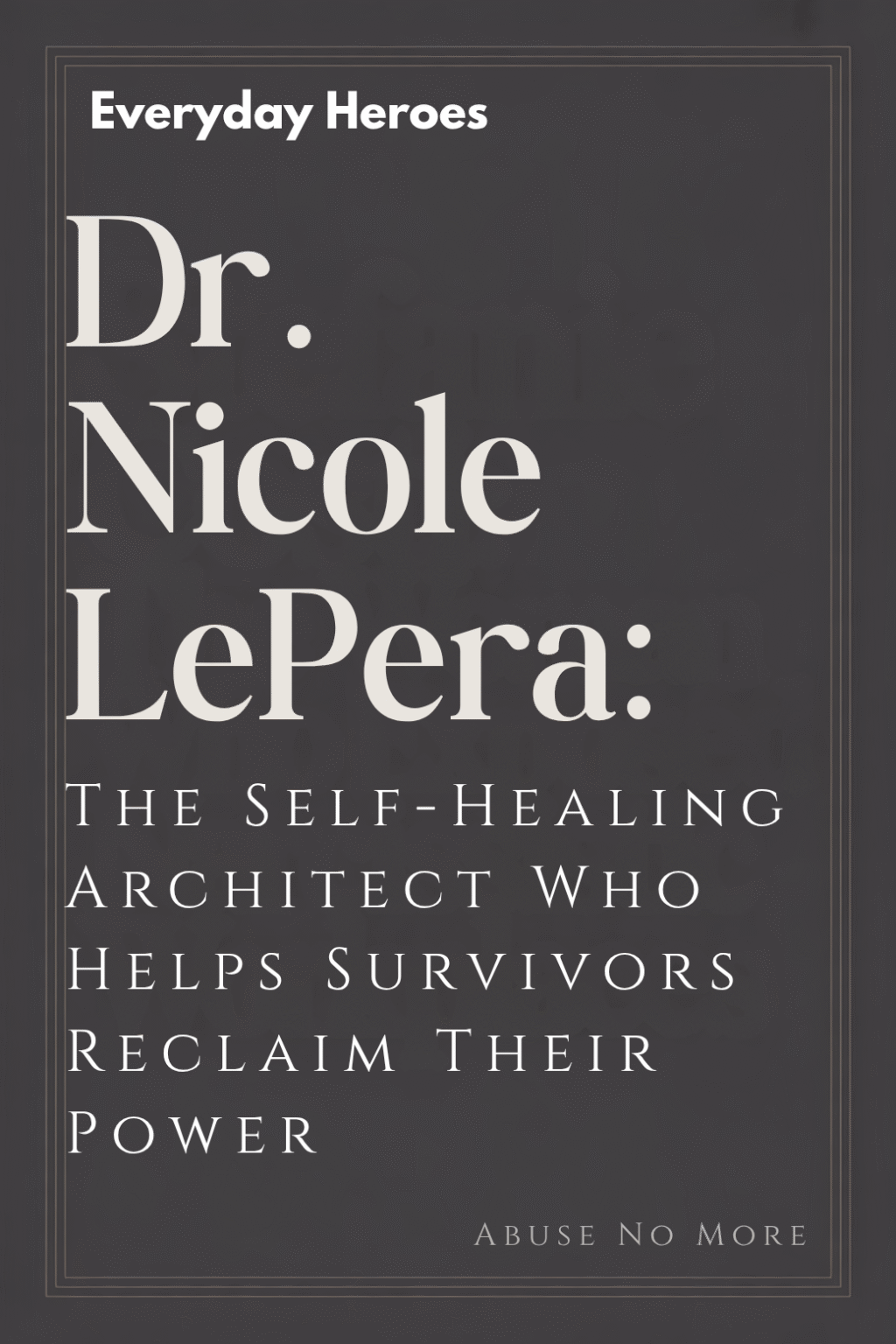
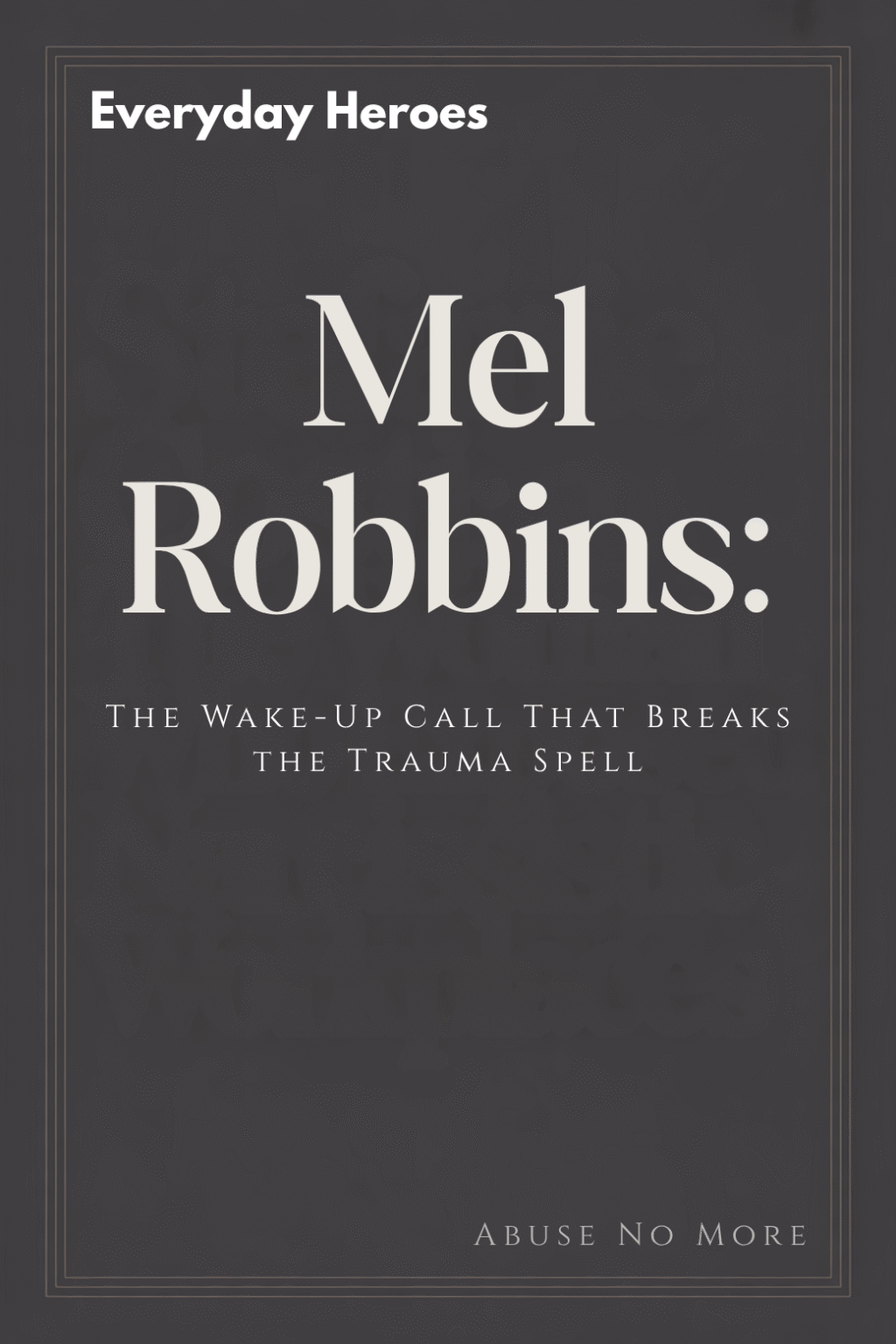
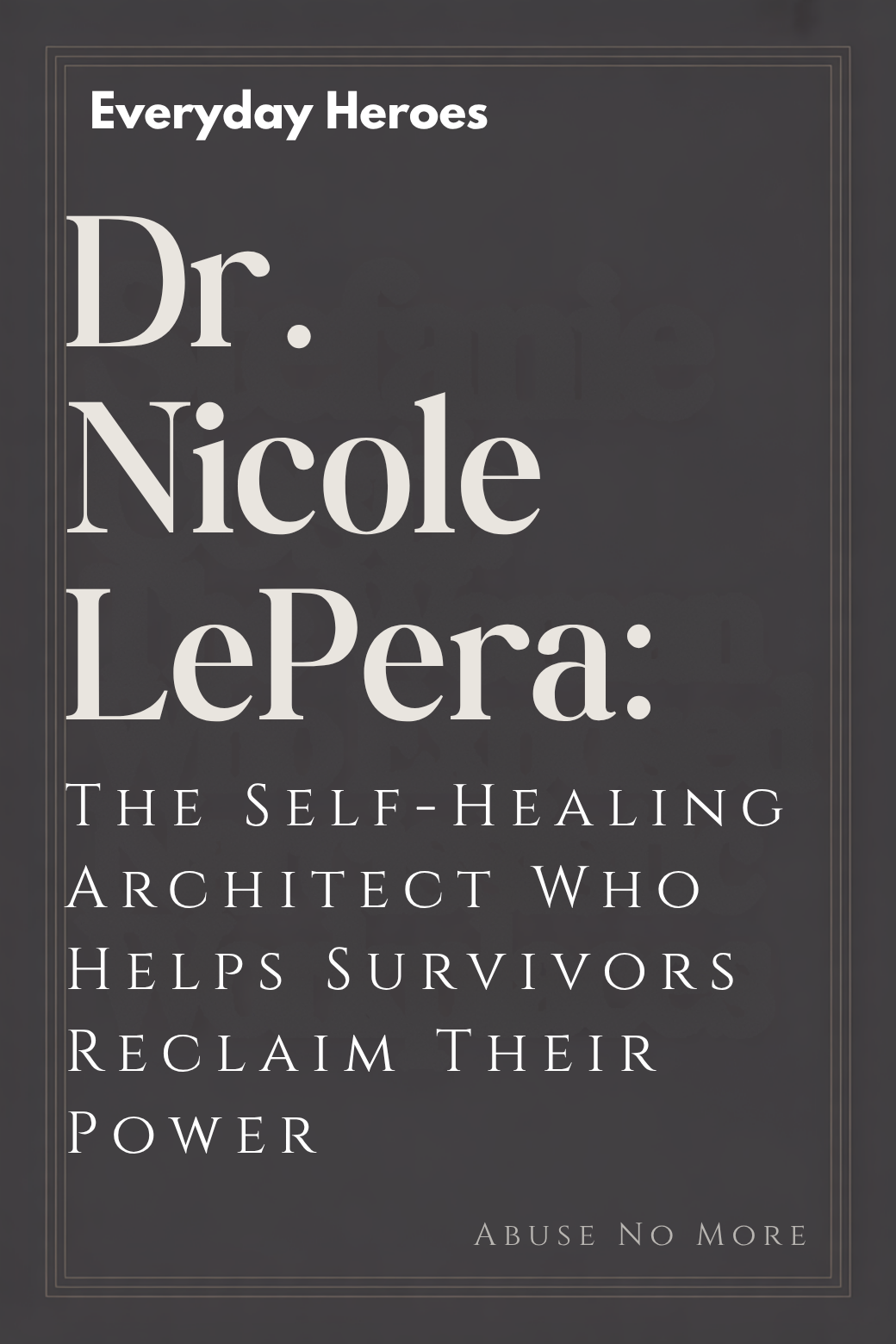
-dream-team-your-tactical-6-pack-to-exit-heal-reclaim-after-narcissistic-abuse.png)







